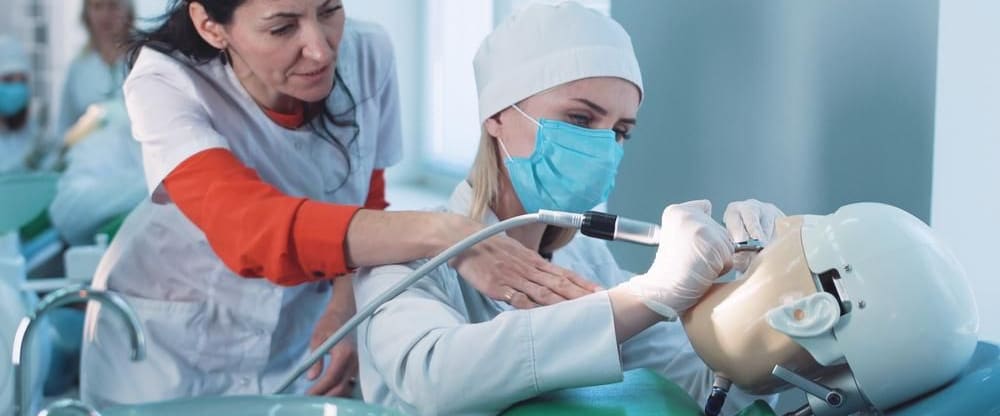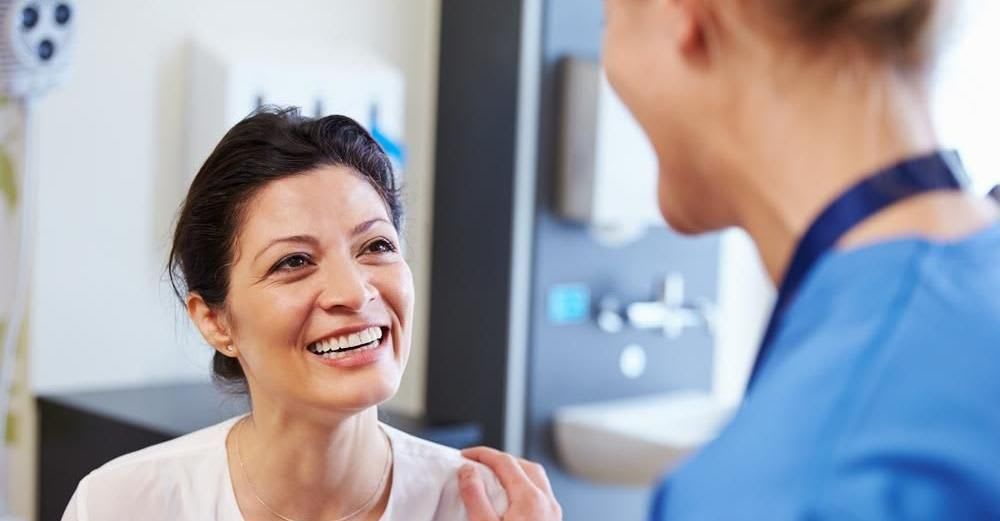Why You Should Study Dentistry
Put art, science, compassion, and healthcare into a blender, mix them up, and voila! You have dentistry, one of the most underrated fields in medicine. Ready to explore? Good. Let's take a deep dive into your oral health.
- Education
- Student Tips

Oral health is perhaps one of the most overlooked and most necessary health problems.
Becoming a dentist or an oral surgeon gives you the opportunity to improve the quality of life and well-being for your patients in addition to maintaining a healthy work-life balance, the ability for creative expression, and a long, healthy career.
Dentistry opens a world of opportunities. Graduates can work in hospital emergency rooms, conduct research, educate future dentists, and travel the world with international health organizations.
Thinking about becoming a dentist? Let's take a closer look at five reasons why you should:
1. It's about precision and accuracy
Compared to all of the unknowns in medicine, dentistry offers a precision that many find appealing. It's mechanical. It's accurate. It's repetitive.
For the most part, there's no question what you can tell your patients regarding their prognosis and you have the most precise tools to do your work.
Columbia University reports that a new precision dental clinic opened earlier this year in Manhattan.
“Many new clinics look very nice, but this is also the first big-data precision dental medicine clinic in the world,” said Christian Stohler, dean of the College of Dental Medicine. “The idea was to create an environment where patients have maximum privacy, while students, instructors and staff create a community that allows us to work together.”
What makes it precise? It's plugged in. Each chair collects patient data on the consultation, from the amount of time a patient spends waiting, to which tools are used, the duration of each experience, the patient's reactions, and their vital signs.
Stohler said, "In the past, we expected patients to benefit when 80 percent of the people had a positive response to certain interventions. Nowadays we would like to be much more specific, to know how a treatment works or whether there’s a likelihood of failure.”
2. The feel-good factor
In dentistry, as in medicine, your work makes a direct impact on a patient's physical being. You are changing lives for the better, teaching them how to maintain better health.
What better feeling is there?
3. Independent career
Right out of dental school, you can be an independent agent. You can open your own practice and set your own goals.
If you're not ready for that, you also have the option to start with another private practice, work in a public clinic, or consider a hospital.
Your dental career does not depend on place--you can set up shop, or join one already set up--wherever you'd like.
The career also lends itself to financial independence. Dentists earn high salaries. Paying back loans shouldn't be a problem, and neither should financial independence after you graduate.
4. Work-life balance
It often ranks highly as a career because of this specific factor. The key? Don't go it alone. You'll need to hire and maintain dedicated staff to work with you. Clinical excellence goes without question.
You need to get more patients walking through your doors and hire the right mix of people to accommodate them. Invest in yourself and invest in your staff.
While that takes times and dedication, once you're up and running, that work-life balance that you seek will come.
5. LIfelong relationships
Can you consider a better way to spend your days than with a great group of interesting people?
What about a lifetime of people whom you get to see and treat, establishing decades-long friendships.
Developing dental relationships isn't easy, but it's critical to your success and your patient's comfort.
A 2017 article in Dental Economics recommends the Golden 10 when you first meet a new patient. What's the Golden 10?
Ten personal facts about a patient that you can use to develop that relationship. Work, family, hobbies, community activities, charitable work, neighborhood, education, TV, sports, music, movies... they're all on the table.
As a dentist, you want to get a sense of who your patients are and develop authentic trust.
At each visit, gather at least one more fact about your patient. Soon enough, you won't need to remember all the facts. You'll be talking to each other like old friends.
What about the sheer joy of helping others?
Another perk? They're all smiling and happy to see you.
Learn more about dentistry.
Find a program in these categories
Read related articles

What You Should Know If You Want To Practice Medicine Abroad

Five Countries to Choose for Nursing Degrees
